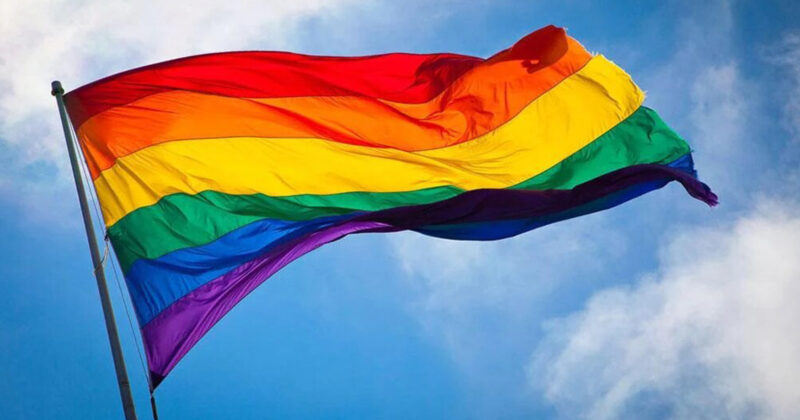The Salt Lake City Council unanimously passed an ordinance establishing versions of LGBT flags as “official” city flags to circumvent Utah‘s new law restricting them in government-sanctioned spaces.
On Tuesday, the majority of the LGBT-identifying council added Salt Lake City’s white sego lily logo to LGBT and transgender-specific flags, turning them into municipal symbols. The addition allowed Utah’s largest city to sidestep a law set to take effect Wednesday prohibiting officials, schools, and employees funded by taxpayer dollars from publicly promoting pride flags when acting within their official capacities.
For example, the law would prohibit Salt Lake City Mayor Erin Mendenhall’s office from promoting the city’s annual LGBT flag-raising event during Pride Month. It has been a tradition for the mayor to endorse the event. With the new ordinance, Mendenhall may be able to promote the event if the LGBT flag with the city’s logo on it is raised instead of a traditional flag.
“This is important and critical for us as a city, but more importantly for the people that live here to know that Salt Lake City continues to be a safe space for everybody,” Councilman Darin Mano said of the council’s vote Tuesday.
Mendenhall added, “Our City flags are powerful symbols representing Salt Lake City’s values … I want all Salt Lakers to look up at these flags and be reminded that we value diversity, equity, and inclusion — leaving no doubt that we are united as a city and people, moving forward together.”
The law is set to take effect on May 7. Flags celebrating political figures or organizations, such as President Donald Trump or Black Lives Matter, are also prohibited from public display on government property or by public school personnel and other state employees acting within their duties under the law. Under the law, violators will face a $500 fine per day for flying unsanctioned flags.
The U.S. flag, Utah state flag, Native American tribe flags, Olympic flag, military flags, flags of other countries, and college and university flags may be flown by anyone, anywhere, at any time. The law also allows for “a flag that represents a city, municipality, county, or political subdivision of the state.”
The Salt Lake City Council’s vote revealed a loophole in the law that provides a dozen exceptions to what flags may be flown on public property or by officials acting within their public capacity.
By adopting LGBT flags as city flags, the mayor hopes to stay in compliance with the law.
Republican state Rep. Trevor Lee, who pushed the law, denounced the move in a post on X.
“Does Salt Lake City really want to play these games? Good luck!” Lee said.
Lee told the Washington Examiner he was willing to go as far as it takes to keep publicly funded officials or institutions from promoting LGBT flags. He argued that LGBT groups should realize that Utah “is not the place and taxpayer-funded entities are not where you should be pushing political ideologies.”
“They know we’re trying to have … healthy political neutrality here. And so if they’re going to keep trying to get around that, well then we’ll just keep passing bills to stop their ideas, and it’s going to be easier and easier every single time,” he said.
Amid the uproar, the Democratic Legislative Campaign Committee released a statement Tuesday slamming Republicans for their stance on LGBT matters, referencing bills in over a dozen states seeking to ban pride flags from public buildings.
“State Republicans are focused on stripping Americans of their freedoms,” the DLCC said. “With [President Donald] Trump in office, Republicans are feeling more empowered than ever to pursue the most extreme parts of their agenda. The GOP’s relentless anti-LGBTQ+ extremism knows no bounds. Democrats in the states will not only protect fundamental freedoms from GOP attacks but will continue fighting for equal protections for all.”

